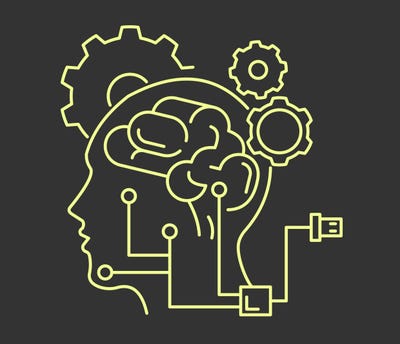Nara Logics: The Happy AI Start-Up at the forefront of Innovation
December 28, 2015

AIBusiness.org recently met the energetic team of AI start up Nara Logics, at the headquarters at Cambridge, MA USA. Nara is one of most promising players in field of Neural Networks; their CEO Jana Eggers, joined Nara's CTO Nathan Wilson and Marketing Lead Sean Lorenz in sharing unique insights on the future of the industry and growth plans for their business.
Tell us about your journey so far with Nara Logics – what was the inspiration for the business, and what makes you different to other neural-network innovators out there?
Nara means happy in Greek. The inspiration was to help us all be happier through better, easier, faster decisions. Sounds simple or maybe even trite. The challenges is that we haven’t had a way that we could bring together different types of information and index it for making decisions based on association and inference, i.e., what different options are driven by information like this. For example, if we are looking for a hotel for a vacation, we want the information that's important to us -- "will *I* like this hotel location, style, price, co-vacationers, etc.?". Or a more weighted decision, like "which doctor should I see for my condition, insurance plan, work schedule, personality, etc. Or if we are making a business decision like "where should I park this late plane to best position transfer passengers, the next flight, the flights coming in, etc." Decisions we make every day often involve more information than we can consider as humans, or if we can, it takes hours or weeks to parse through the information to get to a better decision.
Under Nathan's [Nathan Wilson, Nara Logics CTO] leadership, we've built a synaptic intelligence engine that organizes data by building connections across the data inspired by the way that our brain remembers and connects information. Then, also brain-like, we enable context to be added through feedback, and quickly return recommended actions for that situation. Our special sauce is the neuroscience-based way we define the weight of associations, the ability to reassess those weights based on real-time feedback, and the ability to return a "why", or a reason, for each recommended action. This is how we can work across decisions like "which doctors to suggest to which patients", "which offer to make to this customer", or "which request is fraud".
The difference between this engine and traditional neural networks are:
• Bottom up learning, versus top down training
• Newly discovered synaptic learning rules, versus traditional gradient descent
• Explicit knowledge representation, versus opaque statistical weights -- enables reasoning track backs, i.e., you know why something is recommended
Can you give a brief overview of your proposition, and the benefits it offers to an Enterprise?
Our proposition is to spend more time considering your options and less time searching and researching for the relevant data. I saw a quote the other day that said “Our management data came in the form of a 700-page report of financial line items. We spent 90% of our time…trying to assemble the data and ask the right questions — and 10% on the issue. Those proportions needed to be reversed.” This hits the nail on the head. We want to reverse those numbers, so that people are getting the recommendations for action they need for the situation and focusing their time on which options to take.
How successful have you been so far in reaching out to the enterprise market?
Since we work across industries, for each one, we have different measurements. Some more general numbers are that we've shown 25% or more conversion increase -- whether that's on product sales or offer acceptance working in etail and financial enterprises. For consumer applications, we've seen acceptance of our recommendations versus curated lists to be over 95%. In more back-end operations, our customers tell us they are saving time and money with faster and better decisions.
Which Industries do you believe will be the pioneers in broadly adopting AI technologies? Is HR/Recruitment one of them?
Funnily, we gave the answer above before reading this question. So, yes, we believe HR, including recruiting, should be one of the pioneers, and we are seeing early indications of that from some leaders.
Consumer-focused industries are doing some pioneering work, as those industries have always understood the power of segments of N=1, but they never had the technology to deliver on that. Another area is healthcare, again, because the individual is so critical. The challenge with healthcare, of course, is the sensitivity of the data. The opportunity with even anonymized or non-sensitive data is huge and will continue to drive some great work that can be applied in different areas.
To us, though, it isn't about an industry, but rather the problem being solved. We believe the pioneering work will be in growing the cognitive abilities of machine learning. Right now, much of the work being done focuses on what is considered the perceptual layer in neuroscience, i.e., image, audio and language processing. The next question is... now that I've processed the pictures, audio, language, how do I react? That's where we see the pioneering work: people need support going from processed and organized to taking action.

What's next for Nara Logics?
Our focus is expanding use cases for our technology. We have experience in etail and banking as mentioned, and also travel and hospitality. We are in the earlier stages with healthcare, law enforcement/intelligence and oil & gas. Another early stage area that we are particularly excited about is in employee assignment. What we love about this area is that whether it is call center routing or project assignment for a services company, what we are being asked for is assignment recommendations that will make employees happier. To be able to take into account the needs of the case or project and take into account the employees aspirations and satisfaction is additionally inspiring for us. That truly helps us express our full vision for this technology.
About the Author(s)
You May Also Like


.jpg?width=700&auto=webp&quality=80&disable=upscale)
.jpg?width=700&auto=webp&quality=80&disable=upscale)
.jpg?width=700&auto=webp&quality=80&disable=upscale)



.jpg?width=300&auto=webp&quality=80&disable=upscale)
.jpg?width=300&auto=webp&quality=80&disable=upscale)